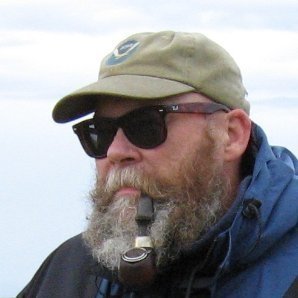Hér má nálgast námskeiðslýsingar allra námskeiðanna sem í boði eru. Einnig má sjá skipulag námsins í sameiginlegri kennsluáætlun Sjávarbyggðafræði og Haf- og strandsvæðastjórnunar.
Námskeiðin uppfylla kröfur ýmissa stéttarfélaga um námsstyrki. Vor- og sumarannir eru tilvaldar fyrir háskólanemendur sem vilja stytta námstímann í reglubundnu námi.
Fyrirspurnir sendist á kennslustjóra Háskólaseturs.
Marine Protected Area Management
- Summer 2026
- Kennari: Dr. Bradley W. Barr
Um námskeiðið
The class addresses the issues, challenges and opportunities related to the management of coastal and marine resources through a focus on the design, implementation and evaluation of marine protected areas (MPAs). Worldwide, MPAs are being seen as both necessary and appropriate in addressing anthropogenic impacts resulting from human use, and overuse, of marine ecosystems, including (but not limited to) commercial and recreational fishing, marine transportation, off-shore oil and gas development, mineral extraction, renewable energy, place-based marine mammal conservation and management, and global climate change. Students will be given the opportunity to learn about how MPA managers around the world are confronting these complex challenges, develop a practical understanding of the tools managers use to address them, and acquire some understanding of what challenges have yet to be effectively met.
The focus of the course is gaining an in-depth understanding of the real-world realities, challenges, and opportunities of marine protected areas management,, as well as to acquire a deeper knowledge of these challenges to critically evaluate, assess, and develop creative solutions to more effectively manage these significant places.
Kennari
For more than four decades, Brad Barr (USA) has been actively engaged as a practitioner in marine and coastal protected areas management and preservation. He received his undergraduate and graduate degrees at the Universities of Maine and Massachusetts, and his PhD from the University of Alaska Fairbanks. He is currently a Senior Advisor in the US National Oceanic and Atmospheric Administration’s Office of National Marine Sanctuaries’ Maritime Heritage Program.
For the past 14 years, he has served as Visiting Faculty at the University Centre of the Westfjords, teaching courses on marine protected areas, preservation of underwater cultural heritage resources, and Arctic Ocean governance, as well as advising many UW students’ thesis research. He is also an Affiliate Professor at the University of New Hampshire School of Marine Science and Ocean Engineering.
Bradley is a member of the IUCN World Commission on Protected Areas, serves on the IUCN Marine Mammal Protected Areas Task Force, and is a founding member of the International Committee on Marine Mammal Protected Areas. He has published extensively on research focused on marine protected areas science and management, the identification and management of ocean wilderness, and place-based heritage preservation in the Arctic.

Kennsluskrá
The class addresses the issues, challenges and opportunities related to the management of coastal and marine resources through a focus on the design, implementation and evaluation of marine protected areas. Worldwide, marine protected areas are being seen as both necessary and appropriate in addressing anthropogenic impacts resulting from human use and overuse, of the marine ecosystems, including commercial and recreational fishing, marine transportation, off-shore development related to oil and gas resources, mineral extraction and renewable energy, land-based sources of pollution, and global climate change. Students will be given the opportunity to learn about how marine protected areas managers are confronting these challenges and develop a practical understanding of the tools managers use, and acquire some understanding of what challenges have yet to be effectively met.
On completion of the course, a student:
- has gained a systematic understanding of the complex and dynamic nature of management of marine protected areas, learning to "think like a manager", and apply "lessons learned" from the design and management of marine protected areas in the larger context of marine and coastal conservation.
- can accurately define a problem, think about it in a critical manner, assess information at hand and draw inferences about how best to approach its resolution.
- has understanding of the various human activities that can adversely affect the structure and function of coastal and marine ecosystems and is familiar with management strategies which are effective at addressing such threats.
- has gained the skills necessary for participating in and facilitating group discussions and deliberations, as well as crafting and delivering effective presentations targeted to key stakeholder audiences.